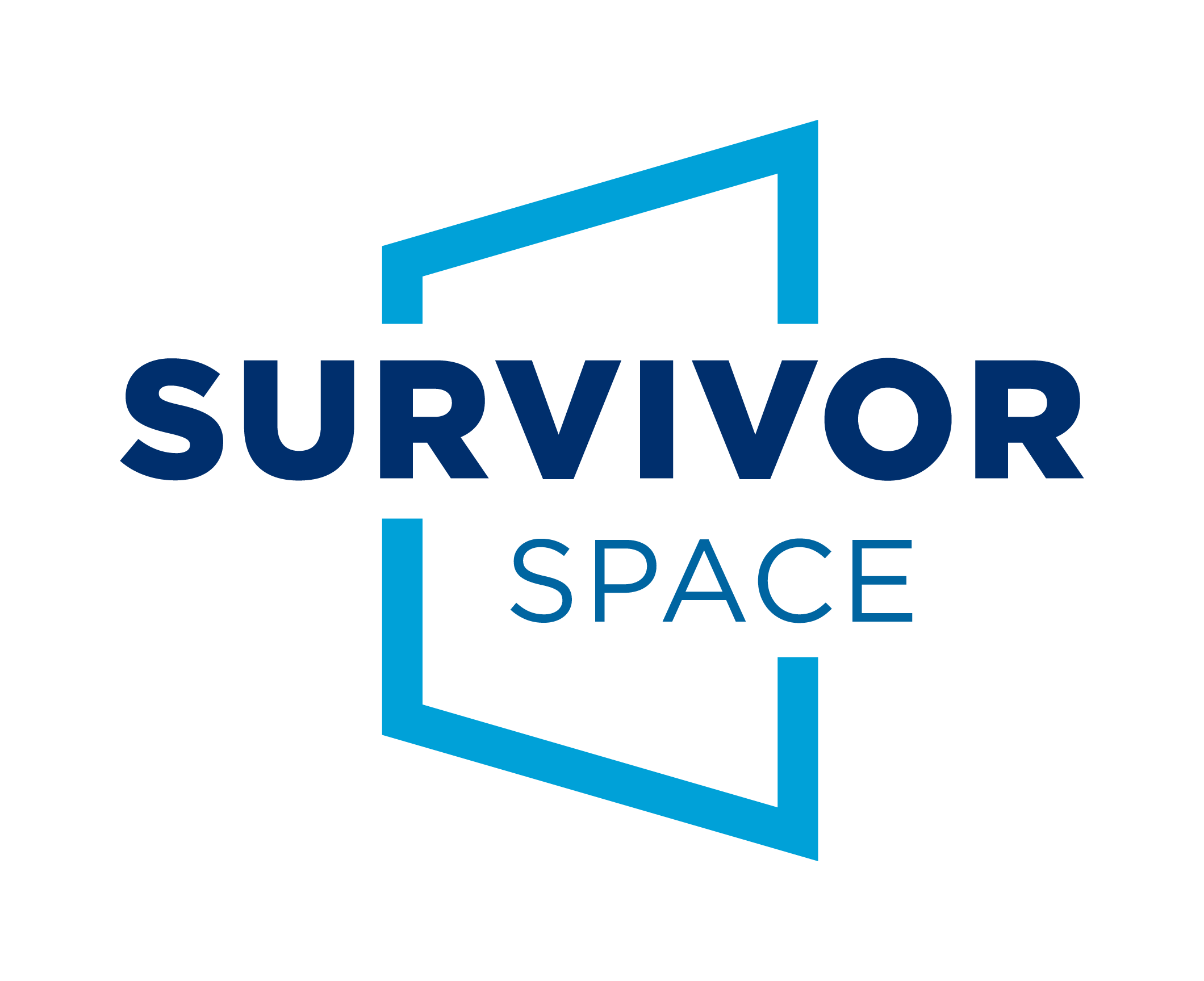Encountering the Dark Shadows, Again

This past weekend revealed some feelings I thought I was in control of. But I found myself exhausted, unable to sleep, and vulnerable to the old programs that paralyzed me. I cannot pinpoint the exact trigger or the cause of my immobilization, but the familiar feeling was overpowering.
As an adult male, I carry the weight of experiencing sexual abuse as an elite athlete that society often misconstrues or dismisses. The impact of this trauma has been a constant companion in my journey through life, and it's like a relentless dark ghost that haunts the recesses of my mind. In my experience, the struggle to understand the subtle nuances of these dark thoughts and feelings has been a formidable challenge.
Society's beliefs about males who have endured sexual abuse are often riddled with stereotypes and misconceptions. The prevailing myth that men are impervious to such trauma can be isolating, leaving many of us silent. The unspoken assumption that we should "man up" and move on is like an anchor, weighing us down as we navigate the turbulent waters of our emotions.
Sexual abuse's impact is insidious. Like a virus, it infiltrates our minds, sowing seeds of confusion, guilt, and shame. These emotions are the dark shadows that persistently haunt us, often without our conscious awareness. It's not that I walk around with a sign saying, "I am a survivor," but the silent battle within me is constant. But I continuously share my story publicly with audiences; sometimes, these transparent and vulnerable moments impact my mindset and impair my career.
Identifying such thoughts is challenging when they masquerade as perfectionism, procrastination, self-doubt, or a general sense of hopelessness. It's not a blatant desire to end my life that plagues me, but rather the pervasive feeling that I live on the edge of existence, teetering precariously between the past and an uncertain future. These subtle and unrelenting thoughts are sneaky and elusive, much like a ghost that you can't quite grasp.


Photo by Alexei Scutari on Unsplash
Photo by Alexei Scutari on Unsplash
I often feel on the precipice, constantly holding these thoughts at bay. I've realized that suicidal feelings can be more about a longing for relief from the relentless torment within than a genuine desire for death. It's like juggling delicate glass balls, each representing my hopes, dreams, and self-worth. And in my darkest moments, I fear I might drop them all.
The impact on my career has been profound. Procrastination, a seemingly harmless habit, is, in fact, the manifestation of these inner struggles. It's as if I'm stuck in a perpetual cycle of postponing my potential, forever hesitating to grab the opportunities that beckon. The dark shadows within my mind whisper that I'm unworthy, incapable, and bound to fail, leaving me with self-doubt.
To survive and thrive in such lingering trauma, I've discovered the importance of always having something to look forward to. It's a lifeline, a beacon of hope that keeps me tethered to the realm of the living. Without it, the abyss of low self-esteem and despair threatens to consume me whole.
Dr. Shad Helmstetter and the Self-Talk Institute have been instrumental in my journey toward healing and resilience. They provide tools to help combat the negative self-talk that continues to be my greatest adversary. Dr. Helmstetter's belief that we were all born to succeed and his metaphor of our minds as fertile soil, ready to nurture whatever seeds we sow, resonates deeply with me.
Positive Self-Talk is a powerful tool that serves as a shield against the dark shadows. I've found solace in repeating statements like, "I am worthy of love and happiness" and "My past does not define me." This Positive Self-Talk acts as a lifeline, pulling me back from the brink when the dark ghost within my mind looms too large.
Visualization is another critical component of the Self-Talk Institute's approach. It's like painting a vivid picture of the life I yearn to lead, free from the shadows of sexual abuse. I visualize a future where I'm thriving, forging meaningful connections, and basking in the warmth of happiness. The more I immerse myself in this brighter vision, the more it feels real and attainable.
Yet, it's an ongoing battle. The dark ghost within doesn't retreat without resistance. It taunts me with self-criticism and self-doubt, attempting to undo my progress. This is where the daily practice of self-talk comes into play. Engaging in a dialogue with myself reminds me of my strength, resilience, and self-worth. It's a continual process of reaffirming the light in the face of the shadows.
Building a support network is crucial in this journey. I've reached out to trusted friends and confidants, sharing my struggles and allowing their presence to strengthen me. They are like beacons, guiding me through the stormy seas of suicidal thoughts and the ongoing impact of sexual abuse.
This journey, marked by its shadows and the ever-present dark ghost, is not over. It may never be, but I've learned to carry the torch of self-belief, illuminating the path ahead. Suicidal thoughts may linger, but they do not define me. With the tools provided by Dr. Shad Helmstetter and the Self-Talk Institute, I've fortified my defenses and stand resilient in the face of the shadows. If I have something to look forward to, I can keep these feelings at bay and continue moving towards a brighter, more hopeful tomorrow.
In this ongoing battle against the shadows of sexual abuse, I've discovered a profound truth: healing is not a linear process, and strength often arises from vulnerability. I've faced the darkest corners of my mind and found resilience there. This journey is an exploration of self, a journey towards understanding and acceptance, and it's not one I take alone.


Photo by youssef naddam on Unsplash
Photo by youssef naddam on Unsplash
One of the most vital steps in my recovery has been to seek therapy and professional help. Talking to a skilled therapist specializing in trauma and abuse has provided me with tools and strategies to manage my emotions, identify triggers, and begin the process of healing. This support has been invaluable and essential for anyone who has experienced sexual abuse, regardless of gender.
Additionally, I've discovered the power of joining support groups and communities tailored explicitly to survivors of sexual abuse. These groups provide a safe space to share experiences, find validation, and build a sense of camaraderie with others who have walked similar paths. It's comforting to know that I'm not alone in my struggles and that some people understand this journey's complexities.
Another critical aspect of my healing has been educating myself about the effects of sexual abuse on mental health and self-esteem. Understanding this trauma's psychological and emotional repercussions has allowed me to make sense of my experiences and has reduced the burden of guilt and shame. Knowledge is indeed power; in this case, it has been a beacon of hope. Sharing and discussing my story has helped me see the importance of accepting my trauma.
Taking care of my physical well-being has also played a pivotal role. Regular exercise, a balanced diet, and sufficient sleep have not only improved my overall health but have also profoundly impacted my mental and emotional stability. These practices have helped to cast a light into the darkest corners of my mind, pushing the shadows further away.
Incorporating mindfulness and meditation into my daily routine has been transformative. These practices help me stay grounded in the present moment and provide a sanctuary from the chaos of my thoughts. It's like finding an oasis in the desert of my mind, a place of respite and tranquility amidst the turmoil.
As I continue this journey, I've accepted that there will be setbacks, and these moments are circular and need addressing. The dark ghost may reappear, and the shadows may threaten to engulf me once more. However, now I have the tools to confront them. Dr. Shad Helmstetter's self-talk techniques and listening to the Self-Talk Plus App daily act as a shield, a protective barrier that keeps these intrusive thoughts at bay.
I have learned that healing isn't a destination; it's a lifelong journey. And like any journey, it's filled with challenges and moments of immense beauty. I've discovered that resilience and hope can be found even in the darkest of places. I've learned that I am not defined by the shadows that haunt me but by the strength I find within to face them.
To anyone reading this who may have their own dark shadows to contend with, know that you are not alone. Reach out for help from a trusted therapist, support group, or even a friend or family member. Seek the resources that resonate with you.
Remember that healing is possible, and a brighter, more hopeful tomorrow is waiting for you. As long as you have something to look forward to and the determination to confront your shadows, you can continue moving forward. Even in its darkest moments, life can be a journey of transformation, self-discovery, and, ultimately, a testament to the power of the human spirit.

The Self-Talk Plus App: https://www.selftalkplus.com?utm_refer=Jmla
The Self-Talk Institute: http://www.selftalkstore.com/
Dr. Shad Helmstetter’s books: Books – Shad Helmstetter

About the Author:
John-Michael Lander is a Survivor, Advocate & Public Speaker
He is also the founder of An Athlete's Silence: www.anathletessilence.com

Published by SurvivorSpace, an initiative of Zero Abuse Project
